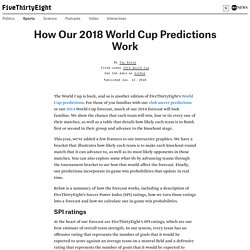

Le go en pratique. Poker. Blackjack. Hearthstone. Starcraft II. Games (theory, institutes , platforms, companies etc: etc; ) Jeux vidéos. Cute games. How to Win at Rock, Paper, Scissors. LiveScience By: Natalie Wolchover, LiveScience.com In the game Rock, Paper, Scissors, two opponents randomly toss out hand gestures, and each one wins, loses or draws with equal probability.

It's supposed to be a game of pure luck, not skill — and indeed, if humans were able to be perfectly random, no one could gain an upper hand over anyone else. There's one problem with that reasoning: Humans are terrible at being random. Our pathetic attempts to appear uncalculating are, in fact, highly predictable. According to Graham Walker, veteran player and five time organizer of the Rock, Paper Scissors World Championships, there are two paths to victory in RPS: Eliminating one of your opponent's options — for example, influencing her not to play Paper — and forcing her to make a predictable move. Rookies rock Those two overarching strategies can be translated into executable moves, starting with the opening one. "Rock is for rookies" should be kept in mind against more experienced players, too. Ask me about: hustling golf! Pool: the art of Matching Up. So I am pretty slow with updates, but here it comes.

Here is a brief story about both having the best of it while getting weight with an additional bonus of the importance of reading your opponents carefully and accurately. It was a Saturday morning at opening time for my neighborhood lounge sometime around 1986. I was inspecting the cleanup crew's work and the daytime bartender had just arrived. In walks Safeway Jim and Mark Coates looking for me. They immediately offerred me the 8 ball in a race to nine sets of nine ball action for $500 a pop. Not only were we playing on bar tables but we were playing on my bar tables. My club was pretty large for a neighborhood joint with 4000 sq feet and five bar tables. Anyway the first match isn't all that exciting. Now for the best part of the story, at least IMHO.
We had been "gambling friendly" with no trash talk nor posting up front. Feel free to ask for any definitions or elaboration you might want for this post. Football Statistics. World cup team rating. The World Cup is back, and so is another edition of FiveThirtyEight’s World Cup predictions.

For those of you familiar with our club soccer predictions or our 2014 World Cup forecast, much of our 2018 forecast will look familiar. We show the chance that each team will win, lose or tie every one of their matches, as well as a table that details how likely each team is to finish first or second in their group and advance to the knockout stage. This year, we’ve added a few features to our interactive graphics. We have a bracket that illustrates how likely each team is to make each knockout-round match that it can advance to, as well as its most likely opponents in those matches. You can also explore some what-ifs by advancing teams through the tournament bracket to see how that would affect the forecast. SPI ratings At the heart of our forecast are FiveThirtyEight’s SPI ratings, which are our best estimate of overall team strength.
Match-based SPI ratings Roster-based SPI ratings. Germany Flamed Out In Spectacular, Historic Fashion. Say goodbye to another defending World Cup champion: Germany, the team that won it all four years ago, is officially out of the 2018 tournament.

Despite ultimately only needing a win over South Korea — the fourth-worst team in the field, according to our pre-tournament soccer power index ratings — to advance to the knockout round, the Germans were upended 2-0 on Wednesday in what was easily the biggest upset of the World Cup thus far. (Going into the match, our model only gave South Korea a 5 percent probability of winning.) Perhaps more surprising than the fact that another defending champ fell was just how Germany managed to let its chance slip away. It peppered South Korean goalkeeper Jo Hyeon-Woo with scoring attempts, out-shooting the Koreans 26-11 and holding possession for 70 percent of the match.
According to ESPN’s expected goals model, we would predict that a team with Germany’s opportunities would net 2.9 goals — instead, it scored zero.